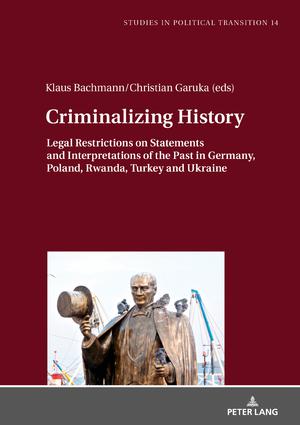
Auteur(s): Bachmann, Klaus
Editeur: Peter Lang
Année de Publication: 2020
pages: 184
Langue: Anglais
ISBN: 978-3-631-80957-0

Why do states ban certain statements and interpretations of the past, how do they ban them and what are the practical consequences? This book offers an answer to these questions and at the same time examines, whether the respective legislation was supply-or demand-driven and how prosecutors and courts applied it. The comparison between Germany, Poland, Ukraine, Rwanda and Turkey offers several surprising insights: in most countries, memory law legislation is supply driven and imposed on a reluctant society, in some countries they target apolitical hooligans more than intellectuals or the government's political opponents. The book also discusses, why and how liberal democracies differ from hybrid regimes in their approach to punitive memory laws and how such laws can be tailored to avoid constraints on free speech, the freedom of the press and academic freedoms.